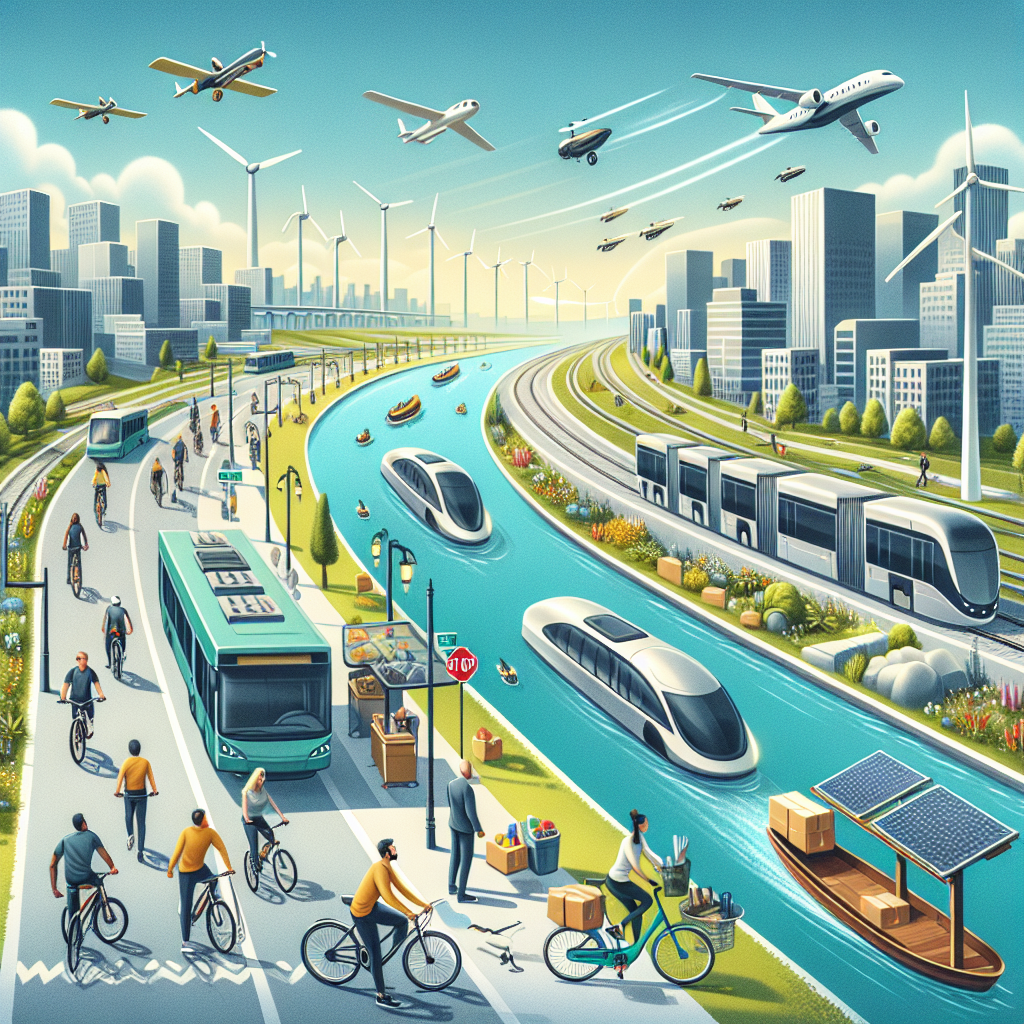As the world becomes more conscious of the impact of transportation on the environment, sustainable travel is becoming increasingly popular. People are looking for ways to reduce their carbon footprint while still enjoying the convenience and freedom that comes with traveling. This has led to a rise in green vehicles and eco-friendly transportation options that are not only better for the planet but also more efficient and cost-effective.
One of the most exciting trends in eco-friendly transportation is the development of electric vehicles (EVs). These vehicles run on electricity rather than gasoline, which means they produce zero emissions and have a much smaller environmental impact. With advancements in battery technology, EVs are becoming more affordable and accessible to consumers. Companies like Tesla have been leading the way in this space, producing sleek and high-performance electric cars that are changing the way we think about transportation.
Another promising innovation in sustainable travel is the rise of public transportation systems that prioritize eco-mobility. Cities around the world are investing in infrastructure like bike lanes, pedestrian walkways, and electric buses to encourage residents to choose greener modes of transport. By making it easier and more convenient to get around without a car, these cities are reducing traffic congestion, improving air quality, and promoting healthier lifestyles.
Car-sharing services like Zipcar and Turo are also gaining popularity as people look for alternatives to traditional car ownership. By sharing a vehicle with others, individuals can reduce their carbon footprint while still enjoying the convenience of having a car when they need it. This trend towards shared mobility is not only good for the environment but also helps to alleviate parking shortages in urban areas.
In addition to electric vehicles and shared mobility services, there are other innovative solutions being developed to make transportation more sustainable. Autonomous vehicles, for example, have the potential to revolutionize how we get around by reducing accidents, traffic congestion, and emissions. By using advanced sensors and artificial intelligence, self-driving cars can navigate roads more efficiently than human drivers, leading to safer and cleaner streets.
Advancements in renewable energy sources like solar power are also playing a role in shaping the future of eco-friendly transportation. Solar panels can be used to charge electric vehicles or power public transportation systems, reducing reliance on fossil fuels and lowering greenhouse gas emissions. As solar technology becomes more efficient and affordable, we can expect to see even greater adoption of clean energy solutions in the transportation sector.
Overall, the future of eco-friendly transportation looks bright as innovations continue to emerge that prioritize sustainability and efficiency. Whether it’s through electric vehicles, shared mobility services, or renewable energy sources, there are plenty of options available for those looking to reduce their environmental impact while on the move. By embracing these trends and supporting companies that prioritize sustainability, we can all play a part in creating a greener future for generations to come.

Leave a Reply